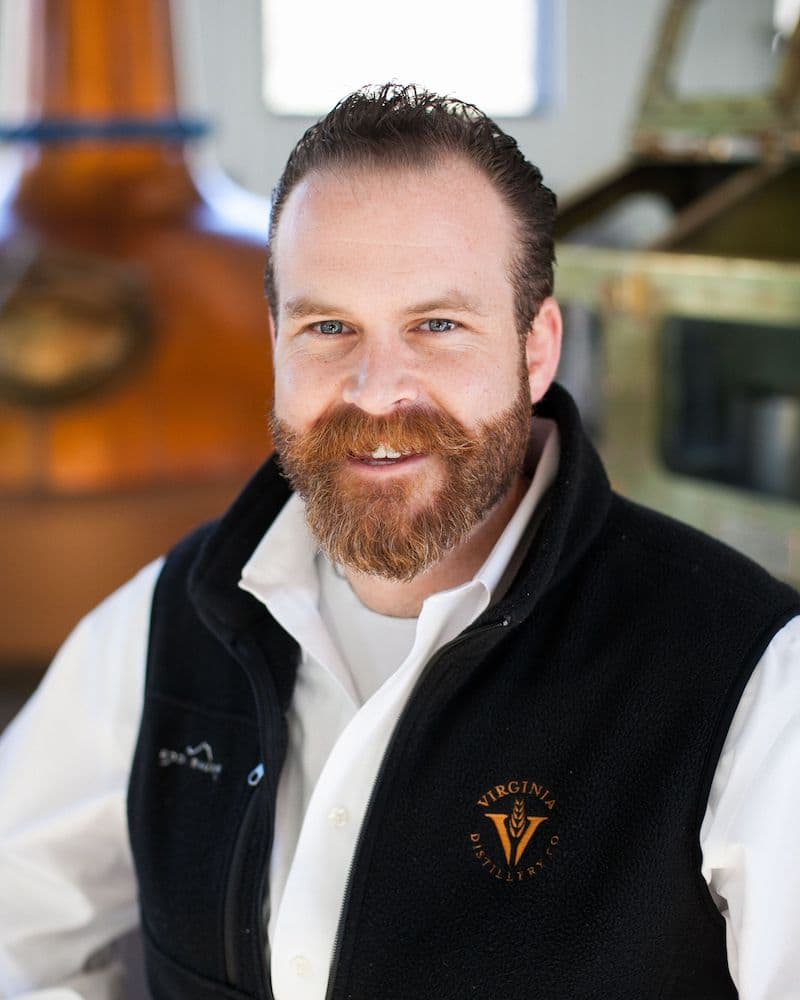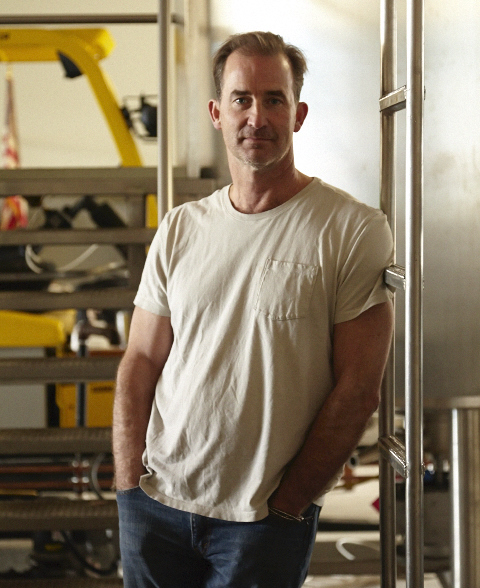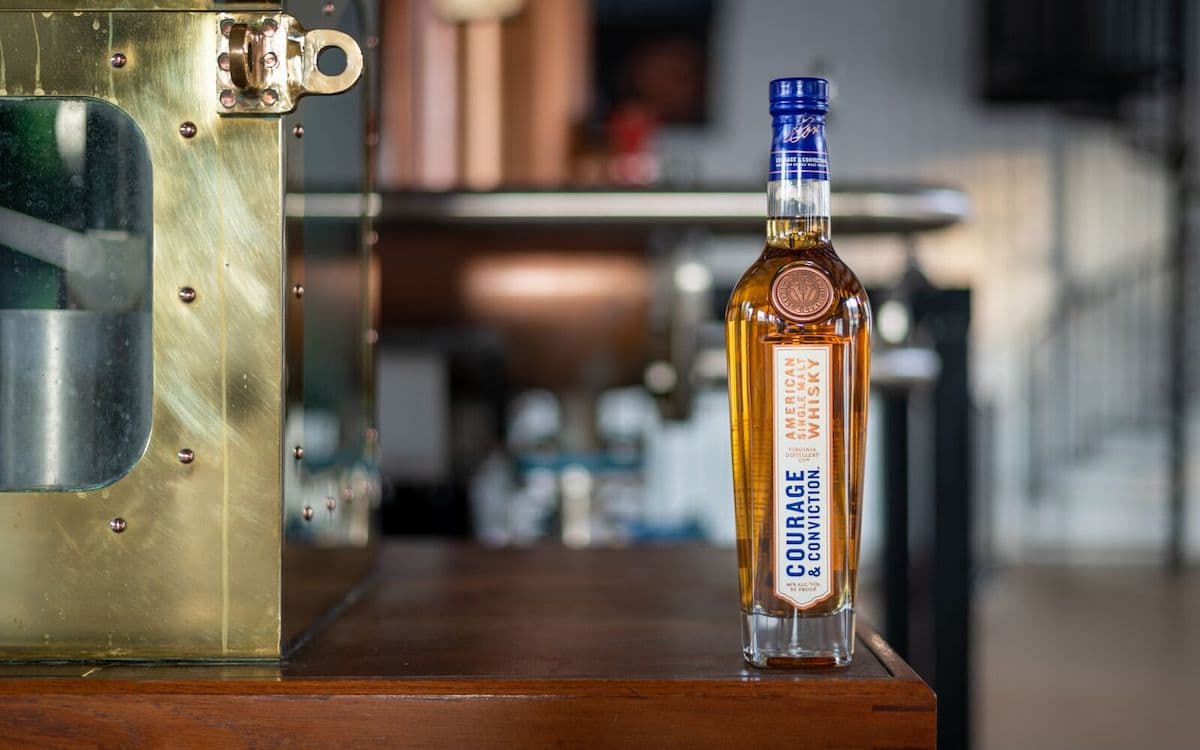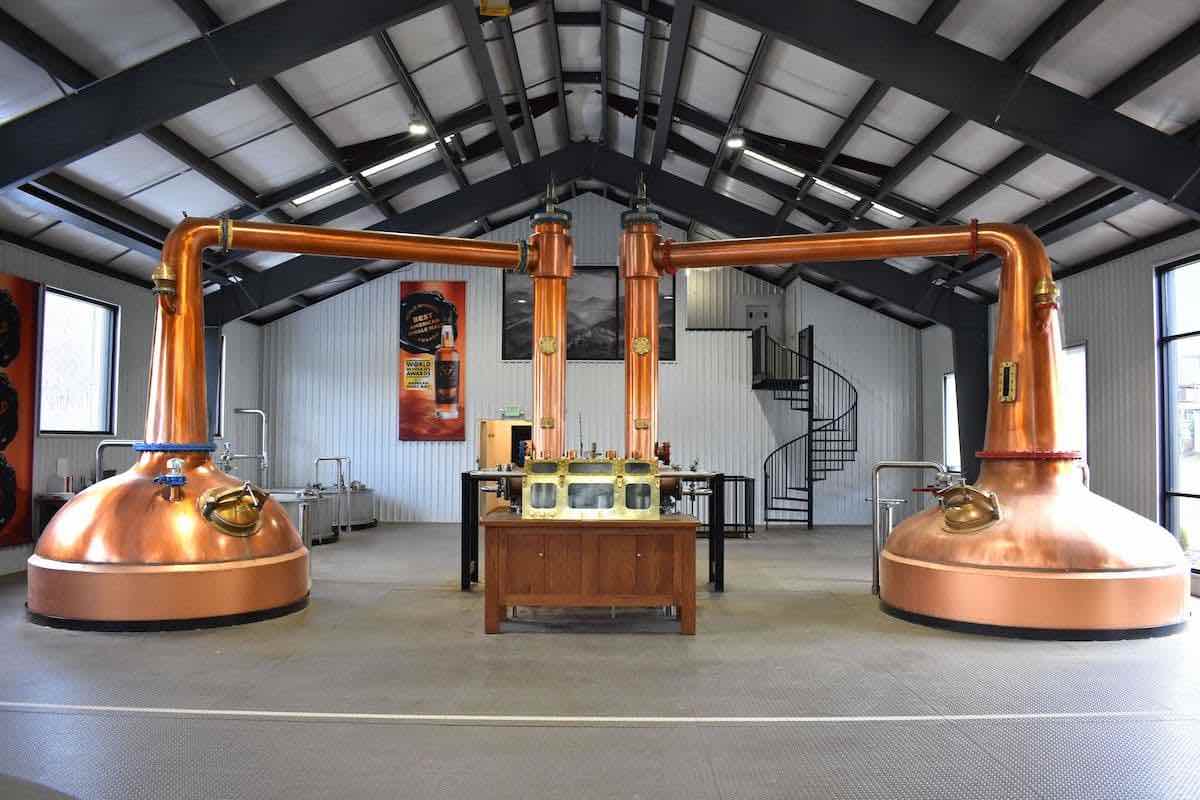April 4, 2020 was always going to be a big day for the Virginia Distillery Co. Since late 2014, the Lovington-based distiller had marked that calendar date as the release day for its American single malt whiskey, Courage & Conviction, which it had begun distilling in 2015. All told, the single malt represented the culmination of 10 years of effort on the part of Virginia Distillery Co. CEO Gareth Moore.
What Moore hadn’t planned for was a pandemic—and the March 30 statewide stay-at-home order from Governor Ralph Northam that shut down Virginia Distillery Co.’s state-run distillery store. The timing could hardly have been worse, but Courage & Conviction wasn’t going back in the bag.
“Once we had really started the launch sequence [in January], we couldn’t press stop once COVID-19 and everything came about,” says Moore.
Then on April 3, the Virginia Alcoholic Beverage Control Authority, or ABC, implemented an amendment to its Distillery Store Agreement allowing distillers to ship spirits directly to consumers in the state. For Moore, the impact of direct to consumer sales, or DTC, was immediate.
“It’s definitely been huge for us, as well as every member of the Virginia Distillers Association I’ve been in contact with,” says Moore, who also serves as the association’s president and had been actively pursuing the measure previous to the pandemic.
Moore has also seen a positive consumer response to DTC.
What Consumers Want
“I think there is a lot of pent up demand both because that’s what consumer behavior has really been moving towards over the last 20 years, but also if you can get something shipped versus having to go to the store, that’s a public health benefit,” he says.
There was, of course, fine print. The amendment limits orders to six bottles of spirits, which cannot be greater than 1.75 liters in volume. The spirits can only be shipped via common couriers like FedEx or UPS, which check recipient’s IDs and add a surcharge for the service that Virginia Distillery Co. is responsible for paying.
And because the spirits continue to be sold through the distillery store, which is itself an agent of the Virginia ABC, Virginia Distillery Co. must send all of the retail funds it collects to the central ABC office in Richmond. The ABC then returns the wholesaler portion of the sale plus a 20% retail commission to Virginia Distillery Co. and retains the rest of the retail mark-up plus state excise tax.

Gareth Moore
While the Virginia ABC closed all of its distillery stores, many of its liquor stores have remained open. However, Moore says that current consumer habits at liquor stores aren’t favorable to craft brands.
“They’re not exploring for new products. They’re going to the basics. The large formats, the 1.75 liters, are seeing the biggest growth. And it’s really those core brands for building a bar [that people are purchasing], rather than spending money on craft products.”
What Distillers Need
In the absence of DTC, Moore sees a grim situation for distillers.
“Without that ability, I would say that revenue would really, really slow down to a crawl for most of the distillers, ourselves included.”
For now, the ABC amendment is tethered to the governor’s executive order, which ends on June 10. But even if that order is lifted, Moore doesn’t see a return to business as normal.
“Right now, my job is to do everything I can to get [the DTC amendment] extended. We need to keep doing that, because I don’t think everyone is going to magically go back to the same consumer behavior of January. I think it may be permanently changed, where people expect products online. It’s very difficult to give something to somebody and then take it away,” he says.
The Massachusetts Distiller’s Alliance is currently circulating a petition that, alongside other measures like excise tax relief for alcohol used to create hand sanitizer and the ability for restaurants to sell takeout cocktails, calls for DTC in the Bay State.
Massachusetts, which is not a control state, has deemed liquor stores an essential business and allowed distilleries to sell their spirits via pick-up. But according to Privateer CEO Andrew Cabot, that’s not enough to mitigate the losses distilleries are seeing from the closure of their tasting rooms, which like bars and restaurants cannot serve guests on-site through at least May 18.

Andrew Cabot
“Where crafts spirits are adjusting is, they’re doing a lot of gift shop outside-the-door [sales] and pick-up. And some of them are doing rather well there. But it’s not going to come close to offsetting the on-premise business that they lost,” Cabot says.
And then there’s the hit of a shuttered hospitality industry.
“A lot of craft distilleries who are making better products do very well in [bars and restaurants]. Obviously, there’s the ambassadorship of bartenders, restaurant owners, and managers, who are supporting local and believe in the products that are being made, and that’s a huge channel for us… That was turned off overnight.”
For Cabot, DTC provides a way to remedy that blow.
Adjusting to a New Reality
“We all have to adjust to our new reality, and I think the example of DTC through a sort of carrier infrastructure such as UPS would allow us to extend our curbside [pick-up] to the whole state, and we think that’s a very rational thing to do in an age of closed down on-premise [tasting rooms], restaurants, and bars.”
In order for DTC to be implemented in Massachusetts, Cabot believes that the measure would have to be approved by the state legislature or by emergency measure. When asked for examples of other states that have allowed DTC since the start of the pandemic and its associated lockdowns, Cabot cites Kentucky, where the industry had been pushing for the measure for years, and California, whose ABC issued a March 19 order suspending the enforcement of various regulations, including a restriction that prevented distillers from delivering spirits.

Virginia Distillery Co.’s Courage & Conviction Whisky
“In California, Gavin Newsom wrote to the distillers saying, ‘What could we do to help? We understand that shutting down restaurants has a huge effect on your businesses. What can we do to help offset that?’” Cabot says.
When asked whether he would consider DTC in Massachusetts to be a “lifeline,” for his business, Cabot says he sees things differently.
“Is it a lifeline? I think it’s legitimate revenue. A lifeline to me feels more like when the government does something. This is allowing us to be entrepreneurs and allowing us to have a fighting chance to survive.”



